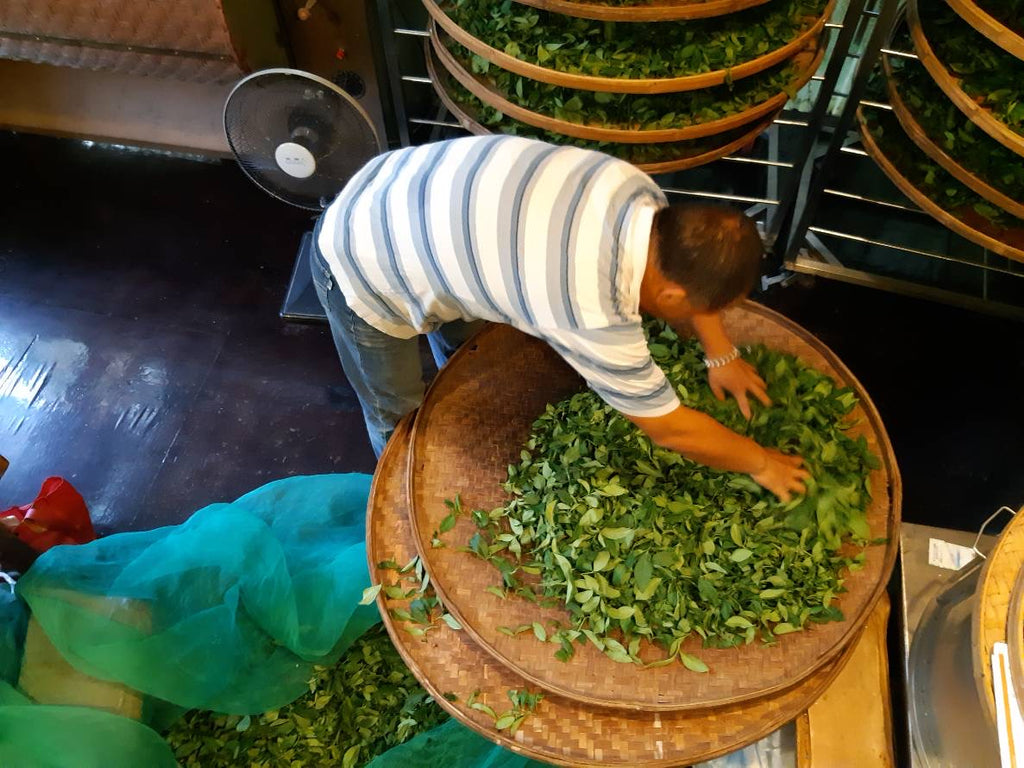
Fo Shou Oolong Tea | Eco-Cha Tea Club

Batch 66 of the Eco-Cha Tea Club is a Fo Shou Oolong Tea produced in Pinglin, Taiwan. The Chinese Fo Shou (佛手) means Buddha Hand. The name refers to the tea plant, or cultivar, which classifies as a large leaf type. This puts it in the category of Assam, and wild strains of tea, along with the Taiwanese hybrid cultivar — Red Jade #18. Despite the fact that virtually all large leaf type strains of tea are cultivated for Black Tea and White Tea production in Taiwan, Fo Shou has found its unique niche in the making of (partially oxidized) Oolong Tea. This batch of Fo Shou was made in the fashion of traditionally made Tie Guan Yin from Mu Zha, Taiwan, but more delicately roasted.

Our source of Tie Guan Yin Oolong sources raw leaf mateirial from tea farmers in the Pinglin tea growing region north of Taipei, which is where this batch of Fo Shou Tea was grown. He processes these leaves by himself at his friend's factory in Pinglin. Then takes his "mao cha" or "unfinished tea" home to slowly roast it to its potential. The photo below taken several years ago shows the young Fo Shou plants on his own farm in Muzha. This plot is still too small to produce any significant crop. As shown in the first photo above, this strain has very large leaves that clearly distinguish it from the more commonly cultivated small leaf type strains that are used for Oolong production.

Even in Pinglin, this strain is very scarce. Our friend sourced a whole day's harvest of hand picked leaves, and the finished product amounted to less than 20kg in total. Since this traditionally made tea is well-oxidized and roasted repeatedly, it's quality improves with several months of "rest". We sourced this tea last winter, and let it settle until now in order to allow it to express itself properly!

The maker of this tea is a rare gem of a person as well. He lives an intentionally simple life based on his Buddhist practice, and ardently strives to be a world class tea maker. His wall of awards are testimony to his achievement.
We feel privileged to be able to share a descendent of a traditionally made Oolong from mainland China. We feel it is a true rarity that represents Taiwanese tea making expertise as well as deep historical roots in the Oolong tradition from the mainland.

